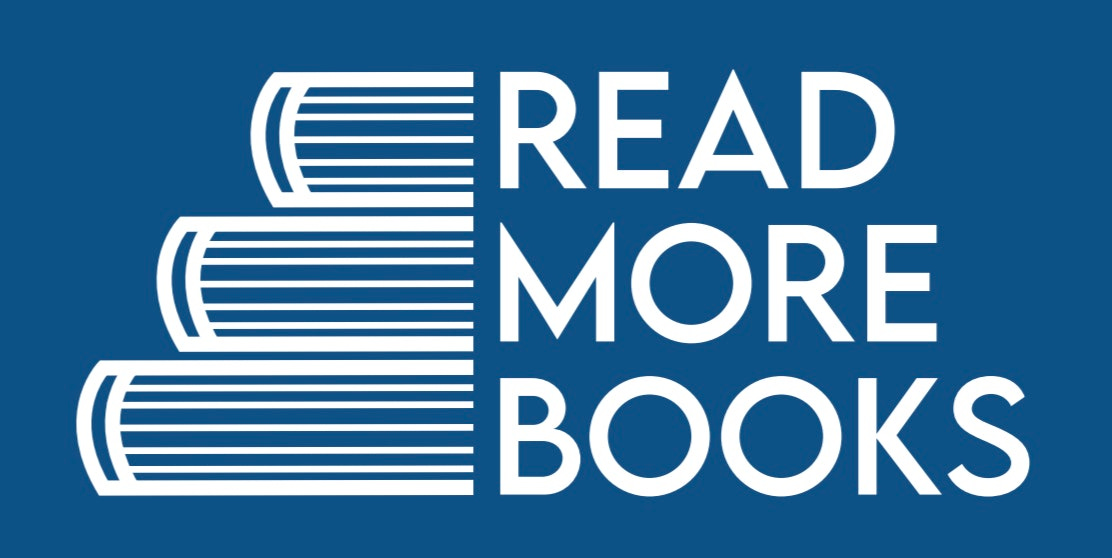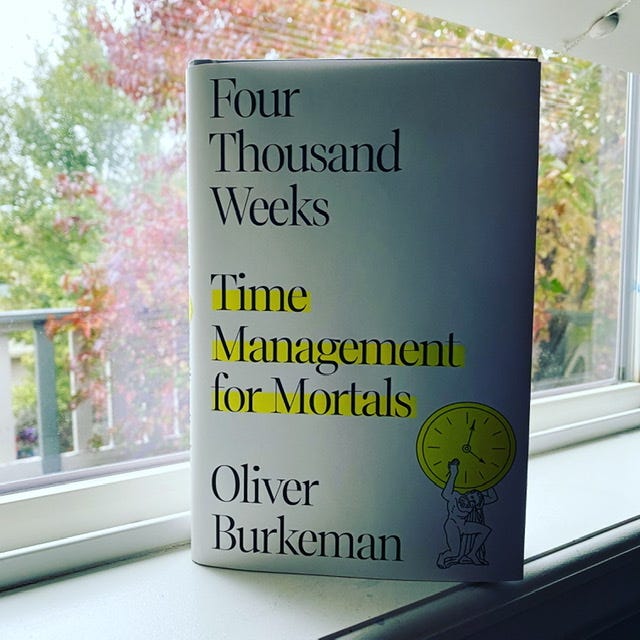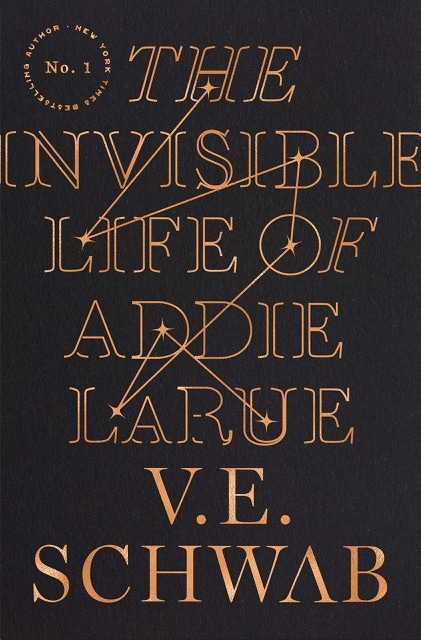What to Read Next (No. 198): the effects of time
The cliches about time and its effects are endless. In our modern world, there seems to be more and more urgency to get things done. Our lives are consumed with to-do lists and overdue tasks in Asana or Todoist or Trello.
And yet, it’s been proven again and again that modern Americans have far more free time than they think they do. We just fill that free time with so much other stuff that it doesn’t feel free.
Both books featured here this week address that conundrum, albeit in very different ways.
Let’s get to it.
To support this little endeavor, get even more bookish content (twice a week instead of once a week), and access to the exclusive Read More Books community on Slack, subscribe below for just $5/month. First month is always free.
Four Thousand Weeks by Oliver Burkeman
Published: 2021 | Pages: 245
Though this book contains the phrase “Time Management” in its subtitle (something added by the publisher to make it more searchable on Amazon, no doubt), Four Thousand Weeks is far less about productivity and far more about making the most of our finite time here on Earth (which averages—you guessed it—about four thousand weeks long).
Burkeman, a longtime productivity writer, has concluded that your to-do list will never get done. Let that sink in.
Your to-do list will never get done.
You will always add things to do. It’s just the nature of life. So, you might as well stop striving for the finality of to-do list completeness.
Instead, spend time really thinking about the things you can say no to.
Yes, you need to figure out how to live productively—hold a job, pay your bills, get plenty accomplished, all that jazz. But the real meat of it, the point of living, is to enjoy yourself, be present in every moment, and spend your precious time doing things that make you feel fulfilled.
Thankfully, Burkeman does not equate this to a life of ease. One of the most thoughtful questions he calls readers to ask themselves is, “Where in your life or your work are you currently pursuing comfort, when what's called for is a little discomfort?” (The book is loaded with probing questions like this.)
Part philosophy, part how-to, part motivational ass-kicker, Four Thousand Weeks is one of the most memorable, impactful books I’ve read this year.
The Invisible Life of Addie Larue by V. E. Schwab
Published: 2020 | Pages: 448
Just as plenty of authors explore time with the help of science and research, novelists the world over explore time with their vivid imaginations. The Midnight Library (check out my review), A Wrinkle in Time (check out my review), Kindred (check out my review), and more.
Go ahead and add Addie Larue to that line of mind-bending, genre-crossing, time-expanding novels.
The Colorado Cocktail and Literary Society read this one in October; though our final reviews were a little mixed, we were all utterly entranced by the premise:
“France, 1714: in a moment of desperation, a young woman makes a Faustian bargain to live forever and is cursed to be forgotten by everyone she meets. . . . But everything changes when, after nearly 300 years, Addie stumbles across a young man in a hidden bookstore and he remembers her name.”
Schwab structures this book so that we’re going between long periods of time in Addie’s past (filled with romance, art, and drama in spades) and then short periods of time in the present (also filled with romance, art, and drama in spades). As a reader, it kept me on my toes, in a good way.
Though I didn’t love the ancillary characters, Addie ends up rather likable (she didn’t start that way, for me at least). And even though the ending was polarizing for our book club, the journey was largely agreed to be worth it. If nothing else, it provided some great discussion for the group.
What does time even mean when nobody can remember you—when you can’t leave a legacy or any sort of imprint on the world? Why does the simple act of remembrance imbue such meaning into our existence? Even after a few hundred years, what is it that makes life truly worth living?
These are questions that any book with a focus on time inevitably explores (or at least the good ones), whether in the real world or the made-up world.
Thanks for the time and inbox space—I sure appreciate it.
-Jeremy




The main thing I want to know about time is:— how can I get enough of it to read all the books I have piled up on my TBR list?
Thank you! Great reviews.